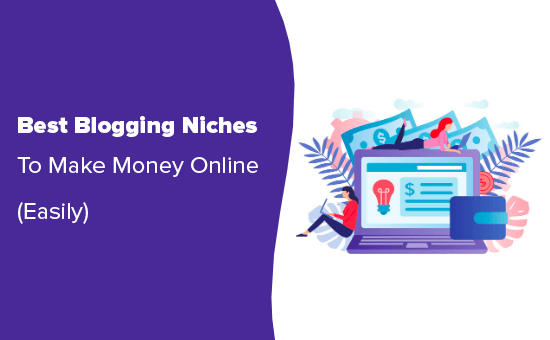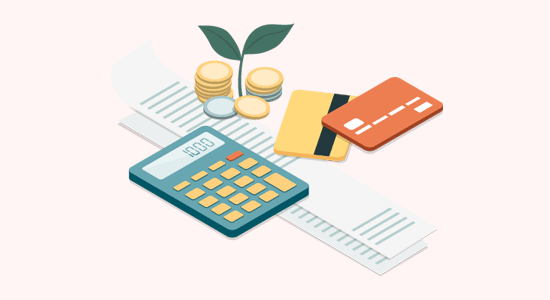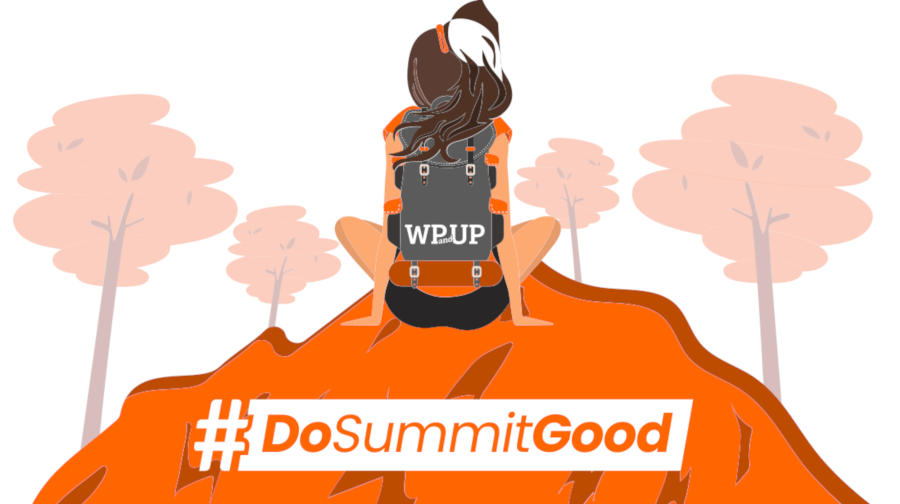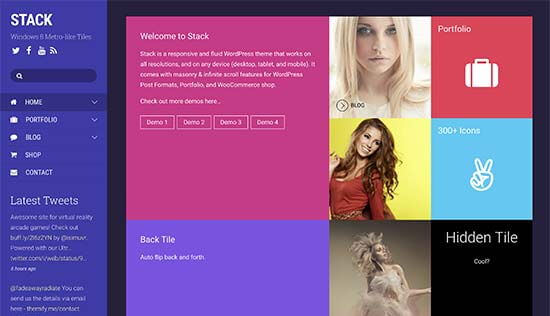Apple and Google have released the much anticipated first iteration of an API intended to aid in global COVID-19 contact tracing efforts. The new API, which has been dubbed the Exposure Notification API, is being rolled out initially to a small group of developers that will develop contact tracing applications for public health organizations.
Vericred Launched Insurance Card Scanning API
Vericred, a data services company simplifying the exchange of health insurance and employee benefits data, today announced the availability of its Card Scanning API, enabling applications to programmatically identify a user’s provider-network from their insurance card.
COVID-19 Contact Tracing Apps Are Coming — Should You Trust Them?
The European Commission, in coordination with its e-Health Network, has released guidance for the development and management of COVID-19 contact tracing applications. The guidance outlines standards for national applications that require they be voluntary, approved by the national health authority, easily dismantled when no longer needed, and privacy-preserving. That last bit is complicated and has already caused confusion.
US HHS Introduces New Healthcare APIs
The US Department of Health and Human Services (HHS) has finalized two rules aimed at delivering US patients better access to their own health data. One rule was issued by the HHS Office of National Coordinator for Health Information Technology (ONC). The other was issued by HHS Centers for Medicare & Medicaid Services (CMS).
IoT App Development: Impact, Challenges, and Process
In a span of ten years, from 2020 to 2030, IoT devices will grow from 75 billion to more than 100 billion, and the improvement from 4G to 5G in terms of increasing IoT is most important. Today's 4G network can support up to 5500 to 6000 NB-IOT devices on a single cell.
The Internet of Things (IoT) is a technology of the future that’s already becoming a reality. Its possibilities for health, agriculture, manufacturing, and daily life are crazier than anything a sci-fi writer of the last century could have imagined. Mobile apps will be a point of connection for many IoT devices, and in this article, we explore how to build an IoT app of the future.
Nubentos Launches COVID-19 Monitoring API
Nubentos, the self-proclaimed API marketplace for health, has released a new API that aims to provide valuable resources for tracking the novel coronavirus (COVID-19). The new API provides developers access to data collected from global health organizations and local administrations that are tracking the spread of the virus.
Sensors: We’re Just Getting Started
I've been following Vayyar Imaging, an Israeli startup that provides radar imaging sensor technology for a few years. They provide a great example of how sensor tech is evolving to deliver business opportunities across multiple industries. The company originally focused on 4D radar imaging for detecting breast cancer by health professionals. But since then, the company’s hardware use cases have extended to other sectors, including retail, robotics, automotive, and smart homes.
For a comprehensive look at IoT systems, check out IoT Systems: Sensors and Actuators.
Edamam Provides Update on Its Nutrition Data APIs
Edamam, a provider of food and nutrition data solutions to businesses in the food, health and wellness sectors reached a new milestone of 40,000 API subscribers. Edamam’s nutrition data APIs allow developers and companies to build applications that leverage Edamam’s capabilities in real-time Nutrition Analysis and Personalized Meal Recommendations, as well as to query one of the most comprehensive food nutrition databases.
Best Blogging Niche – 7 That Will Make Money (Easily)
Are you thinking about starting a blog but not sure which topics or niche to choose?
Choosing the right niche for your blog makes it easier to create engaging content and even make money online.
In this article, we’ll explain how to easily choose the best blogging niche that will eventually help you start earning online.

What is a Blog?
A blog is a website that’s updated regularly with new pieces of content, which are normally written articles. These are called “posts” and appear in reverse chronological order, with the newest at the top of the list.
To learn more, see our guide on the difference between a blog and a website.
When blogs first started, they were mostly personal diaries, sharing information on a range of topics of interest to the person writing.
That’s still how some blogs work today, but a large number of blogs now focus on specific niches that interest the blogger and their target audience.
For instance, WPBeginner is a blog focused on helping non-techy users do more with WordPress through helpful tutorials, how-tos, and other articles.
How to Make a Blog?
To start a blog, you need three key things:
- A domain name: the address of your site (ours is wpbeginner.com)
- Web hosting: online storage for your site, so visitors can access it
- A blogging platform: special software that lets you easily create a blog without needing to do any coding
Normally, a domain name costs around $15-20 per year and web hosting starts from $7.95 per year.
That’s a significant investment, especially when you are just testing the waters.
Luckily, Bluehost has agreed to offer our users a free domain name and a generous discount on hosting. Basically, you can get started for $2.75 per month.
→ Click Here to Claim This Exclusive Bluehost Deal ←
Need more options? See our guide on how to choose the best web hosting detailed comparison of top hosting providers.
When it comes to your blog platform, there are plenty of choices available, including many great free ones. See our list of the best blogging platforms for detailed comparison.
However, if you want to make money from your blog in the near future, then WordPress.org is your best option (this is what we use on WPBeginner).
It is easy to use and comes with thousands of design options and add-ons. Most importantly, it gives you the freedom to monetize your blog in any way you want.
For more details, see our detailed guide on how to start a WordPress blog.
Related: Why you should use WordPress
Can You Really Make Money Blogging?
Starting a blog isn’t going to make you rich overnight, but you can definitely make money blogging.
Many popular blogs make money online using different methods. Often, this is called “monetizing” your blog.
Smaller blogs with a specific target audience can easily make a nice side income. Many popular blogs make six and even seven-figure income (see: WPBeginner income – how much money does WPBeginner make?).
The following are just some of the most popular monetization methods used by blogs all over the world.
Advertising: Running ads, often through an advertising network like Google AdSense. Some bloggers sell ads directly to companies instead.
Sponsorship: Running sponsored (paid for) content from an advertiser. This is often in the form of sponsored blog posts, but could also include social media posts on Instagram or other social networks.
Affiliate marketing: Linking to products or services that offer commission when someone clicks on your link and makes a purchase. This is a great way to monetize your blog. We have lots of affiliate marketing tips and tools to make it easy for you.
Digital products: By selling digital products like Ebooks, online courses, printables, apps, software, music, and more. Digital products generally have low overheads and can work for almost any niche.
Services: If you’re a writer, photographer, coach, or similar, that can be a great way to monetize your blog. You might even start a blog to help you market an existing service you offer, like logo design or freelance writing.
Physical products: Although they have higher costs than digital ones, physical products can be a great way to make money. It’s easy to add an online store to your WordPress blog and start selling.
Things to Consider When Choosing Your Blogging Niche
Many new blogs die within a few weeks and most don’t even make it to a couple of months.
Whatever blogging niche you choose, make sure you are genuinely interested in that topic. This would make it easier to stick to it and keep yourself motivated.
It’s also important to consider:
Do you know enough about your niche to be able to write confidently? You don’t need to be an expert, but it’s best to start a blog on a topic that you’re able to write about without having to do loads of research.
Can you easily make money from your niche? While blogs on all sorts of topics can and do make money, some niches are a lot easier to monetize than others. A blog about a little-known or uninteresting topic might not get enough readers to make much money.
Have you chosen an appropriately sized niche? It’s best not to go too broad. If you’re aiming for an audience of “everyone”, you’re likely to end up with “no one”. Try to find a sub-niche that’s a great fit for you.
Are you happy to have your name associated with your niche? While it’s fine to blog anonymously if you want to, however you might find it difficult to monetize.
Top Blogging Niches That Will Make Money
You might already have a topic in mind for your blog, or you might not have any ideas at all. All the niches below are great ones to try, so long as you pick a topic that you’re truly interested in.
These are all big, popular niches that have been around for years and that can make a lot of money.
1. Health and Fitness

Health and fitness are huge topics, and you’ll definitely find an audience if you’re blogging about something in this area.
Health and fitness is one of the most popular blogging niches. It is a lucrative niche which means there are a ton of blogs that will be competing with you.
The easiest way to build your voice is by narrowing it down to your general interest.
There are lots of different angles that you could take:
- A particular diet: paleo, gluten-free, raw food, 5:2, keto…
- A particular type of exercise: running, weight-lifting, CrossFit…
- A specific audience: women, men, young, old, geeky…
- A particular approach to health: homeopathy, acupuncture, wellness…
- Sharing your progress: if you’re on a health journey of your own, you could update readers on that and share your lessons learned
Tip: We’ve got a list of the best WordPress themes for CrossFit gyms. A lot of those could work well for other health or fitness topics too, so take a look and see if one would be right for your blog.
2. Personal Finance

We all need money, and many of us want to earn more, spend less, or save more. Blogs on personal finance have found huge audiences, and again, there are lots of different angles and approaches you can take.
You might choose to write about:
- Frugality: money saving tips, using coupons, anti-consumerism…
- Investing: market tips, best index funds, angel investors…
- Debt: paying it off, mortgages, student loans…
- Budgeting: software, motivation, cost-cutting tips…
- Sharing your progress: this is quite common with blogs that focus on getting out of debt
Related: Best WordPress themes for financial blogs.
3. Fashion

Fashion is another immensely popular blogging niche and one that could be a great money-maker. It’s a particularly good fit if you love posting on Instagram, which is where some fashion bloggers have become especially influential.
Many fashion blogs focus on the blogger and include lots of photos. If you want to remain anonymous, or if you hate being photographed, then this type of fashion blogging probably isn’t for you. Instead, you might want to blog about particular trends within fashion, or share fashion-related news.
Although you might associate fashion blogging with female bloggers, this niche isn’t just for women.
There are plenty of men’s fashion blogs (often called “men’s style”) out there too. These tend to focus more on tips and product suggestions than on personal photos.
We have a complete guide on how to start a fashion blog and make money with step by step instructions.
4. Lifestyle
What’s the “lifestyle” niche in blogging? It can be a little confusing if you’re new to blogging, so let’s break it down.
Lifestyle means writing about a range of different topics that are connected through having the same audience.
For instance, you might have a lifestyle blog where you write about food, fashion, and motherhood. The connection is that you’re writing for women in their 30s and 40s who want to eat well and look great while raising young children.
Alternatively, you might have a lifestyle blog aimed at single women that focuses on travel, beauty, and hair. Or you might have a blog aimed at men aged 20 to 40 that’s all about style, fitness, and music.
The mix of topics is up to you, but it’s important to make sure your blog has a very clear brand to give it focus and direction.
Tip: Many fashion WordPress themes or fitness WordPress themes can be a good fit for lifestyle blogs. As with fashion blogs, design is really important in this niche, so invest in a premium theme if you can.
5. Business and Marketing

There are loads of blogs out there that cover business and marketing related topics. If you’ve been reading a lot about blogging, you might feel like every popular blog talks about something to do with blogging, marketing or building a business!
If you’ve got a business or marketing background, then starting a blog in this niche could be a great idea. As with the other niches on our list, this is a huge one, so you’ll want to find a clear focus and voice for your own blog.
Depending on your expertise and interests, you might choose to blog about:
- B2B (business-to-business) marketing
- B2C (business-to-consumer) marketing
- Entrepreneurship: starting and growing companies
- Small businesses: more and more people are moving into self-employment, so this is a great area to target
- A particular type of marketing or area of marketing: networking, social media marketing, copywriting, direct response marketing…
Tip: Almost any of these multi-purpose WordPress themes could work for your business or marketing website. Divi is an especially good option as it’s fully responsive and you can customize it however you like.
6. Technology and Gaming

The fast-paced technology niche is great for making money from affiliate income, either directly from manufacturers and software companies, or through a website like Amazon.
Your best monetization routes are likely to be through advertising and affiliate marketing. Even if you’re not writing in-depth product reviews, a technology or gaming blog will give you lots of chances to link to products or software using affiliate links.
You might not be able to break industry news or share insider information, but there are still lots of things you could write about in this niche:
- Specific equipment or gadgets: phone handsets, digital cameras, fitness trackers, Chromebooks…
- Games: for consoles, PCs, mobiles, Facebook…
- Tutorials: either for a specific piece of software (e.g. Photoshop) or more wide-ranging
- Latest news: usually about a particular company or type of product
- Technology or gaming for a specific demographic, such as teens or boomers
Related: See our step by step complete affiliate marketing guide for beginners.
7. Travel

The final niche on our list is travel. Again, it’s a hugely popular niche, both with bloggers and with readers, and there are a lot of different approaches you could take to build a successful blog.
Blogging about your own travels could be monetized through affiliate links to hotels, recommended travel buys, and so on. It might even give you opportunities for free vacations.
Great photos are, of course, an important part of your travel blog. Even if you’re just writing about local attractions, people will want to see pictures.
You could focus your travel blog by writing about:
- Specific countries or continents: things to do, restaurants to visit, ways to get around…
- A particular type of traveler: families, solo female travelers, digital nomads…
- Travel deals: for flights, hotels, packages…
- Your own travels: having a key theme or brand can make this easier to monetize
For detailed instructions, see our guide on how to start a travel blog and make money from it.
Other Popular Blogging Niches to Consider
Of course, these aren’t the only ones you could make great money from. There are bloggers out there with successful blogs on almost any topic you could think of.
Maybe none of the ideas we’ve looked at sound like a good fit for you. Don’t push yourself to start a blog on a topic that you’re not interested in.
Here are some other good options to try. They all have the potential to make plenty of money.
Crafts Blog
If you love to knit, paint, sew, make jewelry, or engage in some other type of craft, why not blog about it? There are lots of great crafty blogs out there, and they tend to do really well on Pinterest.
As with other highly visual niches, like fashion, lifestyle, and travel, you’ll need to be able to include great photos. You could monetize by using affiliate links to any crafting tools and supplies that you want to promote or by selling your crafted items through a marketplace like Etsy.
DIY Blog
Do you enjoy decorating and remodeling your home? Or maybe you’ve gone further and redesigned or even rebuilt your home. There are plenty of DIY blogs out there, and this can be a great type of blogging to try if you enjoy writing tutorials and “how-to” articles.
Parenting Blog
Do you have kids? There are thousands of blogs out there about parenting, covering all sorts of different angles. While you might think the niche is already full of mommy bloggers, the audience for parenting blogs is so large that it’s definitely worth considering.
To help your parenting blog stand out, you’ll want a clear angle. You could write about a stage of parenting (like parenting toddlers) or you could write for a certain group of parents (like older parents or teen parents).
Educational Blog
Is there a topic that you know well and that you could teach others about? That could become a great niche for you.
For instance, perhaps you’re a keen amateur photographer and you could write detailed tutorials for beginners. Or maybe you’re an experienced developer and you could offer tips for people learning to code.
Sites that teach people how to do something can almost always be monetized through selling ebooks, online courses, or other information products.
Tip: You can also create and sell online courses along with your blog posts to make some serious dough.
Food Blog
We all need to eat! Blogs about food can be hugely popular. In this niche, you’ll almost certainly be sharing recipes, so you’ll want to take photos that make your food look great.
Again, it helps to have an angle or specific area that your blog focuses on within the broader niche. Perhaps you’ll be writing about quick and easy meals that taste great or about gluten-free or dairy-free recipes.
Advertising, affiliate links, or your own recipe book could all be great ways to monetize your food blog.
See our complete guide on how to start a food blog and make money for more advice and details.
Final Thoughts on Choosing the Best Blogging Niche
You could spend forever trying to pick the very best blogging niche. Or you could start your blog and, six months or a year from now, you could be making good money from it.
First, choose a niche that interests you and make sure you have a clear idea about how you can monetize it.
Then, choose a domain name that works well for your blog topic.
Finally, sign up for a hosting account and register your domain name. We recommend Bluehost, which will cost you just $2.75 / month, with a free domain name included (this is a special offer for WPBeginner readers).
That’s all you need to do to get started with your blog.
We hope this article has helped you choose the best blogging niche to make money from your blog. You may also want to look at our list of online business ideas to make money, and our article on how to increase your blog traffic.
If you liked this article, then please subscribe to our YouTube Channel for WordPress video tutorials. You can also find us on Twitter and Facebook.
The post Best Blogging Niche – 7 That Will Make Money (Easily) appeared first on WPBeginner.
CES 2020: A Shift From the Quantified Self to the Medical Self?
When you look at consumer health tech, you see a lot of ideas that fit more into the murky wellness category over medical. The reality is that device FDA approval or clearance is a complex process including over 1700 types of devices.
The regulation process can last up to 18 months and this is after a company has completed rigorous medical trials, There's even now startups such as Enzyme to guide startups through the regulatory and compliance lifecycle.
Medicare and Medicaid's Blue Button API Offline After Bug Reported
Medicare and Medicaid's Blue Button API has been taken offline. The API allows third-party applications to access Medicare claims data. On December 4, 2019, an API partner reported "a data anomaly with the Blue Button 2.0 API". Medicare and Medicaid subsequently discovered a bug that caused certain protected health information to be inadvertently shared.
Cory Miller Interview – Reflections on WordPress and Gutenberg, the Necessity of Mental Health Awareness, and Coaching
WP&UP to Hold #DoSummitGood Online Event for Giving Tuesday

On Giving Tuesday, December 3, WP&UP is holding an online event called #DoSummitGood that features speakers from various “for good” WordPress organizations. The event will have nine sessions from 13 speakers. It begins at 13:00 UTC.
Giving Tuesday is a global movement meant to inspire generosity. The celebration has run each year since 2012 on the Tuesday following the U.S. Thanksgiving holiday. The idea is to inspire people to do good, not for just one day of the year, but each day of their lives.
A WordPress-focused event on Giving Tuesday sounds like a perfect match. Given the nature of open source and the charitable work of many of the people and companies in the space, it makes sense to hold a specific event for the holiday. “This is the first #DoSummitGood and there has already been a discussion about making this an annual event for Giving Tuesday,” said Dan Maby, CEO and a Trustee of WP&UP.
WP&UP is a registered charity organization with a mission to support and promote positive mental health within the WordPress community. Its Health Hubs cover topics like business, skills, physical, and mental health. The organization also provides support and counseling services.
The idea for the #DoSummitGood event was born from a WP&UP Town Hall in October. “Our focus is on collaboration and our Town Halls are an opportunity for members of the public to get involved and help brainstorm ideas for the community, as well as get to know more about what WP&UP does,” said Maby.
The primary event will run via Crowdcast. By registering for the event, attendees will gain access to the Hallway Track to meet with other attendees online. They will also have the ability to ask questions directly to the speakers. Registration is free but will close once it reaches a specific number of signups. “WP&UP is paying for the technical solution to deliver the event,” said Maby. “As a registered charity we have to be responsible for expenditure, and so limiting the number of seats for this first event is one way we can do that.”
For those who do not register and attend via Crowdcast, they can still watch and participate in the event through various social platforms:
Each of the sessions will feature various international speakers who will give a talk on their area of expertise. The sessions will follow a specific format and run for one hour. For the first 10 minutes of each session, the individual speaker or group will talk about the “for good” entity they represent. They will follow up with a 35-minute talk on their subject. Afterward, the speaker and attendees will participate in an open Q&A session.
The #DoSummitGood event is designed to give back. “Throughout the event, a donation form will be shared,” said Maby. “All money raised through this form will be distributed between the various non-profits that feature in the event.”
Cory Miller, a Trustee at WP&UP, will kick off the event with a session titled “The Iceberg of Life: How I Manage the Ups and Downs.” Miller has been open about mental health within the WordPress community and his struggles for several years. He has previously written on the topic of The Iceberg of Life, which is worth reading if you are looking to get an early look into what his session may be about.
Marieke van de Rakt will follow up with a talk about improving a site’s SEO. She is representing Yoast and its diversity fund program, which helps to remove the financial burdens that cause minorities or underrepresented groups to speak at conferences.
The nine sessions have a diverse group of speakers from various organizations that are currently providing support for charities, minorities, and other groups that need help. The topics include turning passion into a profession, bringing more diversity to speaking roles at conferences, and more. Two of the sessions will be round-table events with multiple speakers.
Introduction to the Spring Boot Actuator
The Spring Boot Actuator provides production-ready features for our Spring Boot application. Additionally, this library provides all endpoints for production — without having to write a single line of code just by adding the proper dependency.
You may also like: Magic With the Spring Boot Actuator
The Spring Boot Actuator mainly exposes endpoints like health, metrics, logger, info, thread dump, and more. Let's take a closer look!
Google Buys Fitbit: What Does it Mean for its Competitors, and the Wearable Health Ecosystem?
Those in the IoT space have been watching the evolution of wearable tech from clothing and hearables to variations in connected glasses and more. In the consumer space, wrist-based wearables have been the most persistent — Apple owns 48 percent of the market share, followed by Samsung and Fitbit jostling for second and third space. Sales of the Apple smartwatch increased in the third quarter of 2019 to 6.8 million copies sold — an increase of 51 percent compared to the previous year.
You may also like: Why Privacy Is the Biggest Tech Issue of 2019
Google recently acquired one of the pioneers in the wearables market, Fitbit, for $2.1 billion. This raises issues numerous issues regarding personal data, anti-competition, and the state of wearable health startups.
Monitor Your App’s Health With Spring Boot Actuator
Ever wanted to see the precise HTTP traffic going through your Spring Boot API? With the Spring Boot Actuator and some code, you can! Spring Boot Actuator manages and monitors the health of your app using HTTP endpoints. It also allows you to see everything that’s happening in the background of an OpenID Connect (OIDC) flow.
Azure and HIPAA Compliance: What You Need to Know
What is HIPAA?
The Health Insurance Portability and Accountability Act (HIPAA) is a landmark piece of US legislation that was introduced in 1996, in order to safeguard and secure patient information and transmittal. Covered entities (CE) and Business Associates (BA) should comply with HIPAA regulations. Healthcare providers, health insurance plans and healthcare clearinghouses fall under CE whereas Business Associates can be a person or an entity that provides third party services and activities for covered entities, which involve accessing protected health information (PHI). Any information about the health status, provision of healthcare or payment of healthcare services that is created, collected or transmitted by a covered entity and linked with individually identifiable information is considered PHI under US law.
You may also like: Everything You Need to Know to Get Started With Azure Console.
HIPAA Regulatory Rules
Healthcare organizations have been embracing cloud to cut costs and improve the quality of care. While cloud adoption is a crucial stride for a healthcare entity, it is equally significant to adhere to HIPAA regulations. Ensuring valuable benefits for caregivers and consumers alike, HIPAA establishes standards for the secure handling of PHI.
Positive Impact of Graph Technology and Neural Networks on Cybersecurity
Breaches on the Rise
The Equifax security breach was among the worst ever in terms of the number of people affected and the type of information breached. Information such as names, SSNs, birth dates and addresses are considered the Holy Grail of personal data that allows hackers to gain access to anyone’s personal, financial, and health records.
While frequent incidents of security breaches have brought enough anxiety in corporate America, it’s the complexity of managing cybersecurity and addressing unanswered questions that really have enterprises nervous.


